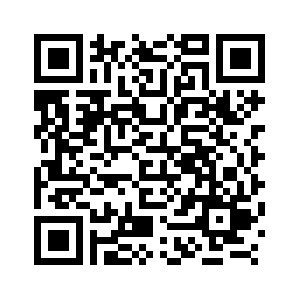BEIJING, April 28 (Xinhua) -- In the Global Health Security (GHS) Index, a comprehensive assessment of health security and related capabilities across 195 countries worldwide led and published by Johns Hopkins University in November, the United States came on top.
Several months later in the novel coronavirus pandemic that has ravaged the whole world, the country has made it to the top spot again. With nearly 1 million infections and more than 56,000 deaths, it is now the world's epicenter. Its once impressive GHS result seems more of a bitter irony now.
When the pandemic broke out, no country on the surface of the Earth was in a better position than the United States to fight the deadly disease.
As the world's sole superpower, the United States is home to many of the top-class medical facilities, scientists and professionals, and boasts almost peerless ability and resources across the globe to weather a health crisis.
What is more important is that the country was not thrown into the tough pandemic fight blindfolded. Its experts working inside the World Health Organization (WHO)'s Geneva headquarters began to transmit related information back to Washington in November; Beijing has kept it regularly updated since the early days of the outbreak; it registered the first confirmed COVID-19 case in January, though the latest evidence shows the epidemic might start to spread on the U.S. soil earlier than previously thought.
Many, both inside and outside the country, are asking why the United States, a nation that would have set an example in battling the outbreak, has squandered the best possible chance to nip the spread of the virus in the bud and thus become the hardest hit country. There seems to be no better explanation than arrogance.
Being arrogant, this U.S. administration seemed to believe that the situation was "totally under control," and that a major outbreak on its own soil is unlikely. This mindset could explain why the U.S. federal government spent so much energy in shutting the virus out early on.
The New York Times recently reported that a dozen of U.S. federal officials tasked with the epidemic containment gathered day after day in the White House Situation Room on issuing entry bans, and devoted only five or 10 minutes to talk about testing at the end of each meeting.
Being arrogant, it seemed that decision-makers in Washington would rather rely on their often shaky instincts than professional and science-based advice. They called the U.S. Health and Human Services Secretary Alex Azar as "alarmist," turned a blind eye to the safety measures urged by scientific advisers, and promoted therapies and drugs whose efficacy has yet to be confirmed.
Being arrogant, those ideologues in Washington refuse to acknowledge China's effective and responsible handling of the epidemic, and constantly question its transparency because they do not believe or do not want others to believe that China can do a better job than the "leader of the free world."
Arrogance is just one symptom of the deep-seated paranoid that has helped expand Washington's common sense deficits. For those egoistic minds, the United States is the Sun in a solar system, and everyone else should orbit around it.
However, they have failed to comprehend the fact that the international community is not an America-centered solar system but an eco-system in which the wellbeing of one is dependent on that of others, and all have responsibilities to make this highly interconnected world a better place.
Although "America First" has been declared the official doctrine when Donald Trump became U.S. president, previous administrations have in fact practiced it for years. As a result, the world has paid a heavy price for Washington's overseas military adventures and reckless tariff tantrums.
With the pandemic still on the rampage across the globe, an overbearing Washington that is reluctant to take its due responsibility could only be a drag on global efforts which would have finally beaten the pathogen at an earlier date, thus harming the interests of both its own people and those around the world.
The coronavirus outbreak is mankind's common enemy. No one can defeat it alone in an era of globalization.
Instead of racking their brains to hold others accountable, it is imperative for those short-sighted Washington politicians to ditch their ego, face up to this unprecedented challenge, and join others to bear down the pandemic with science and common sense, with solidarity and sense of responsibility. Enditem



